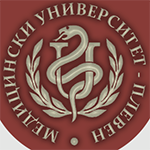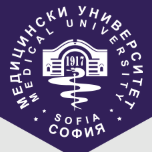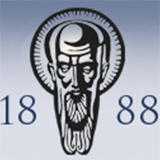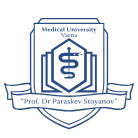Detailed introduction of Medical University of Sofia:
Introduction and Overview
The Medical University of Sofia is one of the oldest and most important medical schools in Bulgaria, and one of the important institutions in the field of medical education in Europe. It is located in Sofia, the capital of Bulgaria.
History and Establishment
The school was founded in 1917, and its predecessor was the Medical School of Sofia University. In 1954, the Medical School of Sofia University was established as the Sofia Higher Medical Institute, and in 1995 the institute was officially named the Medical University of Sofia.
School Strength
Faculty: It has 1,969 academic staff members who can provide students with rich professional knowledge and guidance.
Scientific Research Achievements: It has made important contributions and outstanding academic achievements in the field of medical research, especially in clinical medicine. Its scientific research achievements have a certain influence in Bulgaria and even internationally.
International cooperation: It has established cooperation agreements with more than 150 universities around the world, such as the National University of Singapore, Astana Medical College in Kazakhstan, Hiroshima University in Japan, and the University of Tennessee in the United States. It is also part of the Erasmus + program, attracting students and teachers from all over the world.
Nature of the institution
Public university.
Educational philosophy
Its motto is "Erudiendo, Sciendo, Curando", which means "To teach, to research, to cure". It is committed to providing students with high-quality medical education and professional knowledge, cultivating outstanding medical experts with world-class medical skills, so that students can be fully trained and developed in both theoretical learning and practical operation, and emphasizes the close integration of teaching, scientific research and clinical practice.
Key laboratories and disciplines
Key laboratories: There are no publicly prominent specific key laboratories, but the university has a number of advanced scientific research facilities and experimental platforms, which provide good conditions for medical research.
Key disciplines: Clinical medicine ranks 465th in the world and is one of the school's advantageous disciplines, covering internal medicine, surgery, pediatrics, neurology, ophthalmology, otolaryngology and other aspects; dentistry and pharmacy also have a high level of teaching and research.
Faculty
Currently, there are medical schools, dental schools, medical schools, medical schools, and public health schools. There are also medical schools in Sofia, Vratsa and Blagoevgrad.
Rankings
Ranked 1201-1500 in the 2025 THE World University Rankings.
Ranked 1243rd in the 2023 US World University Rankings.
Ranked 165th in the 2022 QS Emerging Europe and Central Asia.
Costs
The annual tuition fee for medical majors taught in English is 9,000 euros, and the annual tuition fee for medical majors taught in Bulgarian is 7,000 euros.
The tuition fee for the English-taught Dentistry major is 9,000 euros per year, and the tuition fee for the Bulgarian-taught Dentistry major is 7,000 euros per year.
The tuition fee for the English-taught Pharmacy major is 8,000 euros per year, and the tuition fee for the Bulgarian-taught Pharmacy major is 7,000 euros per year.
The tuition fee for the English preparatory course is 4,800 euros per year, and the tuition fee for the Bulgarian preparatory course is 3,700 euros per year.
The tuition fee for the professional bachelor's degree course taught in Bulgarian is 3,000 euros per year.
Campus environment
Teaching facilities: It has complete facilities such as teaching buildings, libraries, reading rooms, dormitories and student entertainment centers, which provide convenience for students' study and life.
Hospital resources: There are 13 university teaching hospitals, which provide students with abundant clinical internship opportunities, enabling students to improve their medical skills in practice.
-

Medical University-Pleven
-

Trakia University
-

Burgas Prof. Assen Zlatarov University
-

Varna University of Management
-

D. A. Tsenov Academy of Economics
-

Technical University - Sofia
-

Medical University of Sofia
-

Plovdiv University
-

Sofia University
-

Medical University-Varna
-

Mesoamerican University
-

Istmo University
-

Mariano Galvez University of Guatemala
-

Regional University of Guatemala
-

Galileo University
-

Francisco Marroquín University
-

Rafael Landívar University
-

University of the Valley of Guatemala
-

University of San Carlos of Guatemala
-

Technological Institute of Tlaxcala Plateau
-

Golfo University
-

Technological University of South Sonora
-

Technological University of Huejotzingo
-

Tizimín Institute of Technology
-

Chilpancingo Institute of Technology
